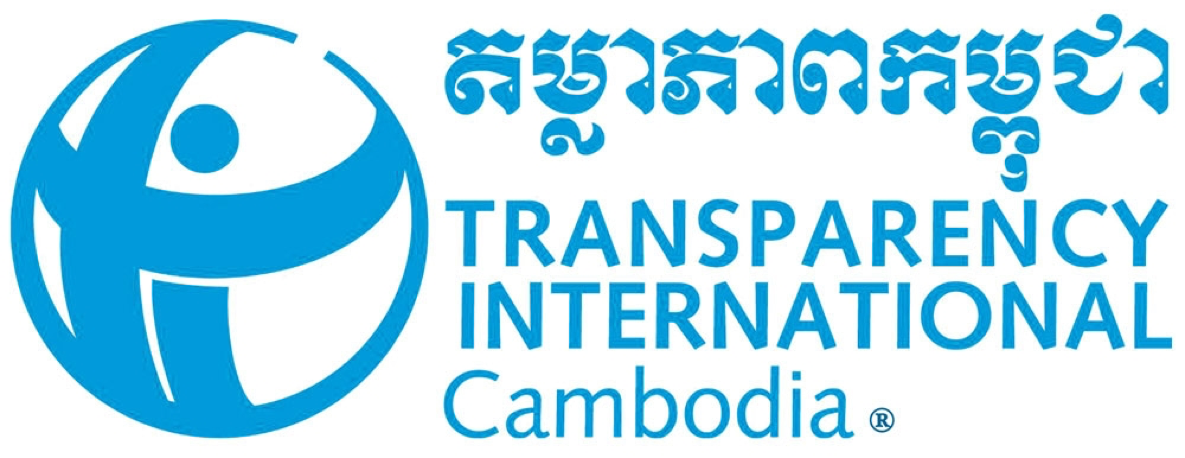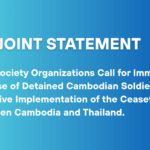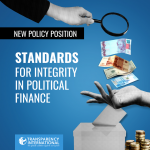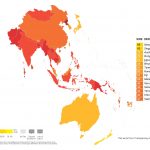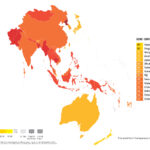CPI 2020 Press Release Cambodia
PRESS RELEASE
Phnom Penh, 28 January 2021 – Transparency International Secretariat in Berlin, Germany, releases the results of the 2020 Corruption Perceptions Index (CPI) today. The index, which ranks 180 countries and territories by their perceived levels of public sector corruption according to experts and private sector professionals, uses a scale of 0 (zero) to 100, where 0 is highly corrupt and 100 is very clean. The CPI is the leading global indicator of public sector corruption, offering a yearly snapshot of the relative degree of corruption by ranking countries from all over the globe.
Globally, the 2020 CPI reveals that a majority of countries are showing little to no improvement in tackling corruption. Nearly half of countries have been stagnant on the index for almost a decade, indicating stalled government efforts to tackle the root causes of corruption. More than two-thirds score below 50, with an average score of just 43. The data shows that despite some progress, most countries still fail to tackle corruption effectively. By regional comparisons, the highest scoring region is Western Europe and the European Union with an average score of 66. The lowest scoring regions are Sub-Saharan Africa (32) and Eastern Europe and Central Asia (36). The Asia Pacific receives an average score of 45 which is the same as the average score in 2019 illustrating general stagnation across the region.
Analysis of the results also reveals that, amid the COVID-19 pandemic, persistent corruption is undermining healthcare systems and contributing to democratic backsliding. Countries that perform well on the index tend to invest more in healthcare, are better able to provide universal health coverage and are less likely to violate democratic norms and institutions or the rule of law. However, according to the findings, even countries with higher scores on the CPI have had their fair share of corruption challenges, including a lack of transparency in public spending in response to COVID-19.
This year’s results show that Cambodia receives a score of 21 out of a total 100—an improvement of one point since 2018. In addition, the country is ranked 160 in the global ranking among 180 countries and territories. From a regional perspective, Cambodia continues to occupy the third lowest spot in the Asia Pacific, coming above only Afghanistan and North Korea, and the lowest spot in the ASEAN region. The results obtained by other ASEAN countries have been mixed. Singapore continued to be ranked among the top 10 cleanest countries globally, with the same score (85), tying it at third place with Sweden and Switzerland. A number of countries in the region see a decline in scores compared to the previous year: Myanmar (down from 29 to 28), Vietnam (37 to 36), Malaysia (53 to 51) and Indonesia (40 to 37). Meanwhile, the rest—Thailand, Lao PDR, and Brunei Darussalam, and the Philippines’s—maintain similar scores.
The Cambodia’s results reflect some progress the country has made, including in its efforts to reduce corruption in the private sector, reform public financial management mainly through the strengthening of resource mobilisation, foster e-government and improve public services, particularly in response to Covid-19. The improvement, however, has not changed the overall perception of experts and business executives, particularly when key structural and systematic reforms that seek to tackle grand and political corruption and strengthen the rule of law are deemed to have made little to no progress. In fact, on both the World Justice Project Rule of Law Index 2020 and the Varieties of Democracy 2020 index, which measure countries’ efforts to advance the rule of law and democratic development respectively, Cambodia continues to receive the lowest scores.
“A persistent low score on the CPI index indicates ingrained political and institutional shortcomings in a country. In the time of COVID-19, corruption poses a double-threat for many low income economies,” said Pech Pisey, Executive Director of TI Cambodia, “Although Cambodia has achieved noticeable results in its Covid-19 responses as well as in its public administration and public financial reform programmes, the CPI score suggests that far more need to be done to address this most pressing issue.”
To reduce corruption, TI Cambodia once again calls on the government to step up its reform agendas by:
- Amending a number of articles in the Anti-Corruption Law, especially those concerning asset declaration.
- Adopting a law on access to information and a law that protects reporting persons, witnesses, experts and victims that meet international standards.
- Strengthening the institutions responsible for promoting the rule of law and address the gaps in the implementation of anti-corruption legislations.
- Enabling active participation of CSOs, the media and citizens in the fight against corruption
- Improving business environment and promoting fair business competition by reducing bureaucratic burdens, promoting equal compliances and eliminate all forms of corruption which are the main barriers of doing business in Cambodia.
- Establishing accountability mechanisms and ensure checks and balances at both the national and sub-national levels.
- Enhancing effectiveness and independence of oversight institutions such as the parliament, the National Audit Authority, the Constitutional Council and the Anti-Corruption Unit.
- Promoting transparency in revenue collection by providing public access to tax payer data to create a better playing field for the private sector and building public trust.
TI Cambodia is committed and stands ready to engage with all relevant stakeholders to help implement key reform agendas in order to promote greater transparency, accountability and rule of law in the country.
About the Corruption Perceptions Index
First established in 1995, the Corruption Perceptions Index (CPI) is a composite index that ranks countries and territories from around the globe based on how corrupt their public sector is perceived to be, from a scale of 0 (very corrupt) to 100 (very clean). It aggregates data from a number of different reputable sources that provide perceptions of business people and in-country experts of the level of corruption in the public sector.
The 2020 CPI ranks 180 countries and territories, drawing on up to 13 surveys covering expert assessments and views of business people. In the case of Cambodia, eight sources were used – namely:
- World Economic Forum Executive Opinion Survey 2019
- Global Insight Country Risk Ratings 2019
- Political and Economic Risk Consultancy Asian Intelligence 2020
- Economist Intelligence Unit Country Risk Service 2020
- The Varieties of Democracy 2020
- World Justice Project Rule of Law Index Expert Survey 2020
- Bertelsmann Stiftung Transformation Index 2020
- World Bank Country Policy and Institutional Assessment 2019
For a full list of result and relevant data sources, visit: www.transparency.org and www.ticambodia.org/cpi2020
For Press Release CPI 2020, please click here
For CPI Result 2020, please click here
For CPI Methodology, please click here
For Frequently Asked Questions, please click here
For Short Methodology Note, please click here
For Technical Methodology, please click here
For Source Description, please click here
###
Transparency International is the civil society organisation leading the fight against corruption.
Media Contacts:
Pech Pisey, Executive Director of Transparency International Cambodia
(+855) 89 972 620
This post is also available in: Khmer
 English
English ភាសាខ្មែរ
ភាសាខ្មែរ